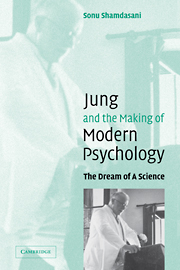1 - The individual and the universal
Published online by Cambridge University Press: 22 September 2009
Summary
Is psychology a science? Few questions have been more vexing for psychologists than this. Reflections upon this issue have been intimately bound up with formations and reformations of psychology. A plethora of related questions immediately follow: What is a science? What is psychology? In what ways is psychology a science? What criteria should one use to adjudicate this issue? No less significant, who is a psychologist? The difficulty with approaching these questions is that while there has been no end of attempted solutions put forward in the form of psychologies and in the shape of psychologists, there has been no consensus, nor even the remote possibility of a consensus. While judgments are not lacking, there is no possibility for any forum for adjudication. However, one approach to these issues is possible. This is to reconstruct the manner in which they have been posed and “answered” historically. Psychology's “questionable” status as a science, and the variety of conceptions of its scientificity makes it important to reconstruct how different psychologists conceived of their enterprise. Furthermore, as Lorraine Daston has demonstrated, debates about the scientific standing of psychology at the end of the nineteenth century were not only significant for psychology, but also had critical impact on reshaping conceptions of science (1990).
This section commences by reconstructing debates about the scientific standing of psychology at the end of the nineteenth century. It traces how psychologists tried to establish a science of subjectivity in the form of an “individual” psychology.
- Type
- Chapter
- Information
- Jung and the Making of Modern PsychologyThe Dream of a Science, pp. 29 - 99Publisher: Cambridge University PressPrint publication year: 2003



